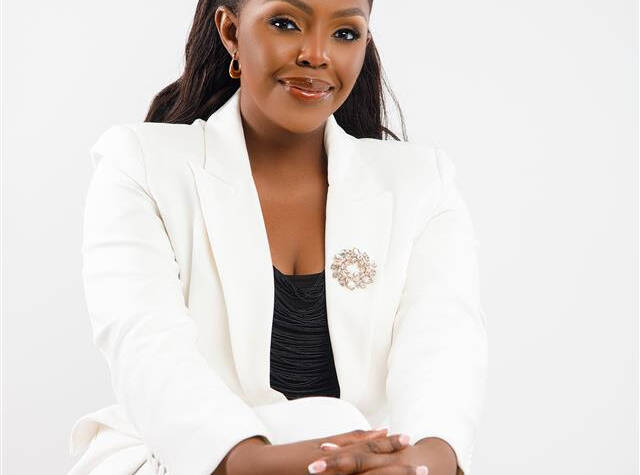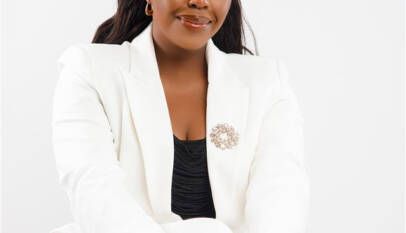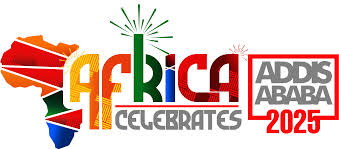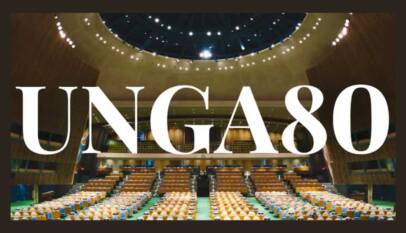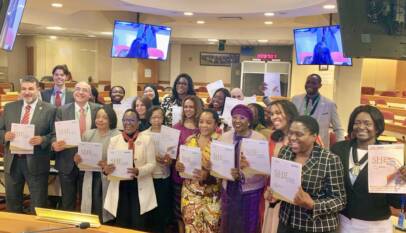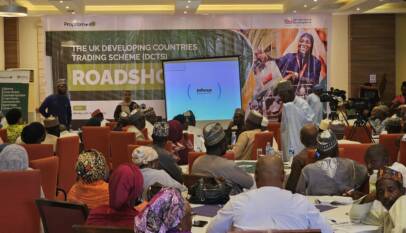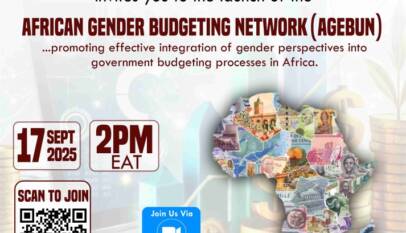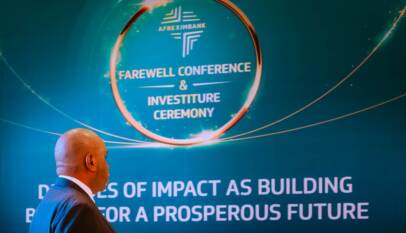How Gender-Inclusion in Higher Education can transform Africa’s Future
Meekness Lunga-Ayidu, Director Higher Education SSA, British Council, ‘on how African women can thrive within systems designed to advance opportunity and inclusion

CAPE TOWN, South Africa, 5 November 2025 -/African Media Agency(AMA)/- Although access to higher education has improved, Sub Saharan Africa still has the lowest enrolment rate globally with only 9-10% compared to the global average of over 40%. While we have made some progress, we are still lagging. 60% of the young people who are not in education, employment or training are women. In as much as women’s participation in early stage and informal entrepreneurship across SSA now equals or even exceeds that of men, men are significantly more likely to own an established and growth-oriented business. Young women face significant additional barriers when attempting to access education or enter the labour market. Between 8 million to 11 million African youth will enter the labour market every year in the coming decades. Yet, only about 3 million new formal wage jobs are created yearly. Informal and self employment are becoming the norm. Action from governments and the private sector is required to close the gap between the increase in the working-age population and lagging job growth.
At the 16th Quadrennial General Conference of the Association of African Universities (AAU) in Rabat this year, the British Council presented groundbreaking research in collaboration with the African Network for Internationalisation of Education (ANIE) titled ‘Higher Education Gender Analysis: Access to Employability and Entrepreneurship Opportunities’. The research exposes systemic barriers across Ghana, Kenya, Nigeria, and South Africa. The findings are sobering. Women in higher education still face discrimination, harassment, and exclusion from leadership positions. Gender policies, where they exist, remain poorly understood and rarely enforced. Female graduates face higher unemployment rates than their male counterparts, while socio-cultural norms continue to prioritise boys’ education, contributing to early marriages and dropouts.
The insights highlight the systemic challenges to advancing higher-education gender-responsive reforms in the four main countries, and chart a roadmap for higher education institutions, policymakers, funders, and partners to bridge persistent inequalities and develop enabling systems that could unlock sustainable gender inclusion in higher education. For example, entrepreneurship holds enormous promise for empowerment, yet a lack of start-up capital and support structures remains. By introducing post-graduation accelerator programmes that incorporate entrepreneurship training and seed funding for women, a challenge like this can be transformed into an opportunity for inclusive growth. This demonstrates the urgent need for systemic reforms that will drive innovation, employability, and inclusive growth, and achieve true gender equity in higher education.
The two proven models include programmes such as Innovation for African Universities (IAU) and Gender Equality Partnership grants that form part of the British Council Going Global Partnerships programme. These programmes offer scalable, evidence-based models that other institutions and development partners can replicate or adapt. Through multi-country initiatives, the IAU co-designs and implements projects that equip graduates, especially women, with market-relevant entrepreneurial skills and mindsets. Its approach blends industry-academia collaboration, start-up mentorship, and enterprise-focused curricula. By embedding gender-responsive teaching, strengthening institutional support for female entrepreneurs, and improving access to funding and networks, the IAU shows how higher education can drive economic transformation and support female students.
Gender Equality Partnerships grants foster cross-border collaboration by funding joint research, institutional partnerships, and policy dialogue that centre gender equity as a core value. Together, these initiatives form a practical, evidence-based blueprint for gender parity, turning research into action and offering adaptable frameworks that universities across Africa can implement.
The ‘Higher education gender analysis’ was commissioned under the latter programme, reflecting a clear commitment to embedding gender equity across all higher education initiatives. The study applied the Accountability for Gender Equality in Education (AGEE) framework to ensure its outcomes were evidence-based and intersectional analysis, addressing not only gender but also how it interacts with class, ethnicity, and geography. AGEE is a UNESCO-developed model that helps governments and institutions identify, monitor, and address gender inequalities in education through data-driven analysis, policy reform, and institutional accountability mechanisms.
And the evidence is clear. Systemic change is required and must be driven by three priorities: gender reforms that include robust anti-harassment procedures, gender-responsive policies and gender-sensitive student support services, such as childcare and flexible learning, amongst others; policy reforms that prioritise gender equity in higher education with affirmative action in admissions and faculty recruitment, targeted scholarships, and funding for female students and entrepreneurs; and higher education transformation that invests in digital skills and infrastructure and integrates entrepreneurship education across disciplines.
Higher education is more than access, it is a powerful lever for innovation, job creation, and economic transformation opportunities across sub-Saharan Africa. When business community including universities, governments, funders, and industry partners collectively take action to address gender disparities in higher education, we create a multiplier effect where women gain entrepreneurial skills, secure funding, access mentorship, and break cycles of inequality that have persisted for generations. The economic and social returns extend far beyond individual success stories to shape resilient, innovative societies.
A call for partnership depends on Africa’s future to unleashing the full potential of its people and now this is the moment for universities, governments, and industry partners to act decisively and scale proven models like the Innovation for African Universities and Going Global Partnerships to embed gender equity in policy and practice, and to champion women as the architects of Africa’s next chapter of growth. We cannot afford to leave half our talent behind. The British Council invites education leaders, policymakers, and funders to collaborate on systemic change that transforms access into empowerment and ambition into opportunity. This is the moment to champion women as the architects of Africa’s next chapter of growth based on proven models and frameworks with compelling evidence. Join the British Council in making gender-responsive higher education a reality across the continent.
Distributed by African Media Agency (AMA) on behalf of ENAMEN Consulting
About the British Council
The British Council builds connections, understanding, and trust between people in the UK and other countries through arts and culture, education, and the English language.
We work in two ways – directly with individuals to transform their lives and with governments and partners to make a bigger difference for the longer term, creating benefits for millions of people all over the world.
We help young people gain the skills, confidence, and connections they are looking for to realise their potential. We support youth to learn English, get a high-quality education, and gain internationally recognized qualifications. Our work in arts and culture stimulates creative expression and nurtures creative enterprise.
We are on the ground in over 20 African countries and deliver impact working with local institutions and partners.
Follow Meekness Lunga-Ayidu:
Sources:
- Higher education figures at a glance
- Some issues with Higher Education in Africa
- Access to employability and entrepreneurship opportunities
- Shaping the Future of Higher Education
- Improving gender equity in higher education in Sub-Saharan Africa
- Expanding entrepreneurship and employability opportunities
- Improving gender equity for entrepreneurship and employability
- Accountability for Gender Equality in Education: About
Media Contact:
Nteseng Ngwenya
The post How Gender-Inclusion in Higher Education can transform Africa’s Future appeared first on African Media Agency.

